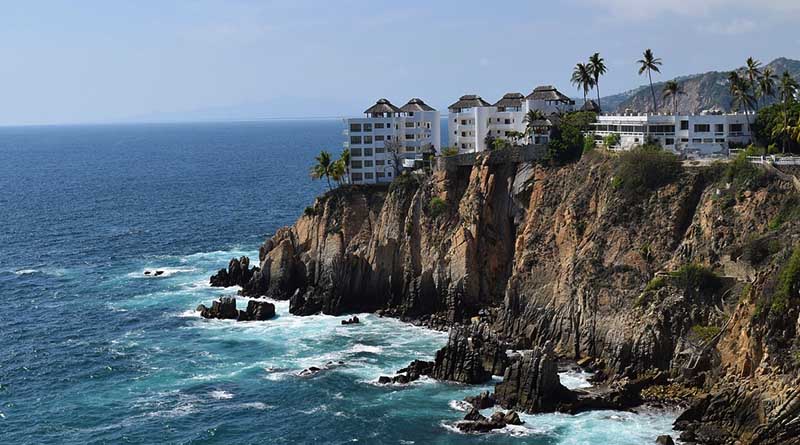If the vacationing potential customers decline to take the tour, they may find the cost of their accommodations significantly increased, possibly be directed to leave the residential or commercial property, and all incentives withdrawn or voided. The prospective buyers (hereby referred to as potential customers) are seated in a hospitality room (a term designated by the land sales market in the 1960s) with lots of tables and chairs to accommodate households. The prospects are appointed a tour guide. This person is normally a licensed real estate representative, but not in all cases. The actual cost of the timeshare can just be priced estimate by a licensed property agent in the United States, unless the purchase is a right to use rather than an actual genuine estate transaction through ownership.
After a warm-up duration and some coffee or snack, there will be a podium speaker inviting the potential customers to the resort, followed by a film created to dazzle them with exotic locations they might check out as timeshare owners. The prospects will then be welcomed to take a trip of the home. Depending on the resort's readily available inventory, the trip will include an accommodation that the tourist guide or agent feels will best fit the possibility's household's needs. After the tour and subsequent return to the hospitality space for the verbal sales discussion, the potential customers are offered a quick history of timeshare and how it associates with the holiday industry today.
The potential customers will be asked to inform the tourist guide the places they want to check out if they were timeshare owners. The remainder of the discussion will be created around the responses the prospective purchasers offer to that question. If the guide is certified, the prospect will be priced quote the market price of the specific system that finest seemed to fit the prospective purchaser's needs. If the tour guide is not a licensed representative, a certified representative will now action in to present the price. If the prospect responds with "no", or "I want to think about it", the possibility will then be given a new incentive to purchase.

If once again, the reply is "no", or "I would like to consider it", the sales agent will ask the possibility to please speak with one of the managers before the possibility leaves. It is at this minute that the possibility realizes that the trip has really simply started. A sales supervisor, assistant supervisor or project director will now be called to the table. This procedure is called: "T.O.", or getting the turn over man to find an incentive generally in the form of a smaller sized cheaper system or a sell unit from another owner. This tactic is commonly utilized as a sales tactic, since the resort is not thinking about reselling already deeded property.
If one incentive doesn't move a prospect to buy, another will follow quickly, up until the possibility has actually either acquired, convinced the typically really courteous sales crew that no suggests no, or has actually gotten up from the table and exited the structure. Timeshare sales are typically high-pressure and fast-moving affairs. Some people get caught up in the excitement of the sales discussion and sign a contract, only to recognize later that they may have made an error. U.S. Federal Trade Commission mandates a "cool off duration" that allows people to cancel some kinds of purchases without penalty within 3 days. In addition, practically all U.S.
The Ultimate Guide To What Are The Numbers For Timeshare Opt-outs In Branson Missouri
In Florida, a brand-new timeshare owner can cancel the purchase within ten days. The law varies by jurisdiction regarding whether out-of-state buyers undergo the rescission period of their state of residence, or the rescission duration of the state where the timeshare purchase was made (e. how to get out of a timeshare contract in south carolina. g., in Florida, the 10-day rescission period applies to all buyers; thus, a Texas purchaser who would just have five days in Texas, has the whole 10-day duration allotted by Florida Statutes). Another common practice is to have the prospective buyer sign a "cancellation waiver", using it as a reason to lower the rate of the timeshare in exchange for the buyer waiving cancellation rights (or paying a penalty, such as losing 10% of the purchase cost, if the sale is cancelled).

If a recent timeshare purchaser wishes to rescind or cancel the timeshare contract, the intent to cancel need to be made within the allocated time duration in writing or face to face; a telephone call will not be sufficient. Recently, a timeshare cancellation industry has actually formed by business who supply one basic service: timeshare cancellations. Nevertheless, some of these companies are presumed of being fraudulent. It is more than likely that a new timeshare owner could have acquired the same product from an existing Find more information owner on the timeshare resale market for considerably less than what the purchaser paid from the resort designer, merely by doing a computer search.
The brand-new buyer generally pays just minimum real estate transfer charges and agrees to take over the upkeep costs, due to the fact that the existing owner can't discover a purchaser for his/her timeshare without paying a resale company thousands of dollars to absorb it for resale. The reason for this abnormality is that the lion's share of the cost of a brand-new timeshare are sales commissions and marketing overhead, and can not be obtained by the timeshare owner. Another reason a brand-new owner might want to cancel is buyer's remorse following the subsidence of enjoyment produced by a sales discussion. He may have understood that he is unsure what precisely http://www.wesleygroupreviews.com/wesley-financial-chuck-mcdowell-inspiration-success/ has actually been bought and how it works, or might have understood the limitless period of a dedication to pay ownership upkeep charges, or may have observed that he understands too little about the timeshare sales company, due to insufficient time during the sales procedure (what are the numbers for timeshare opt-outs in branson missouri).
Also known as Universal Lease Programs (ULPs), timeshares are considered to be securities under the law. Lots of timeshare owners complain about the yearly upkeep charge (that includes real estate tax) being too expensive. Timeshare developers contend that prices compared to staying at hotels in the long term is projected to be lower to the timeshare owner. However, a hotel guest does not have a monthly holiday home mortgage payment, in advance expense, fixed schedule, maintenance fees, and predetermined getaway places. Numerous owners likewise complain that the increasing expense of timeshares and accompanying upkeep and exchange charges are increasing faster than hotel rates in the very same locations.
" The discounted rate I quoted you is just great if you buy today", is the market requirement's pitch to close the sale on the very first see to the resort. what is a timeshare transfer agreement. Many have actually left a timeshare trip suffering being tired by the barrage of salesmen they had to handle prior to they finally exited the tour. The term "TO", or "turn over" guy, was coined in the land industry, and rapidly developed to the timeshare market. As soon as the original tourist guide or salesman provides the prospective buyer the pitch and cost, the "TO" is sent out in to drop the price and secure the down payment.